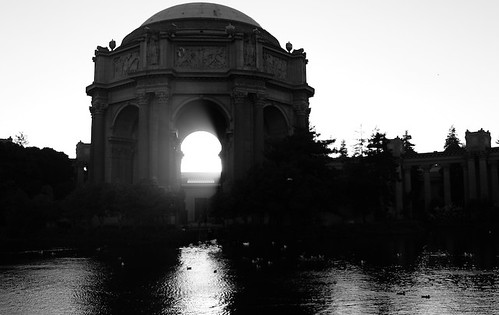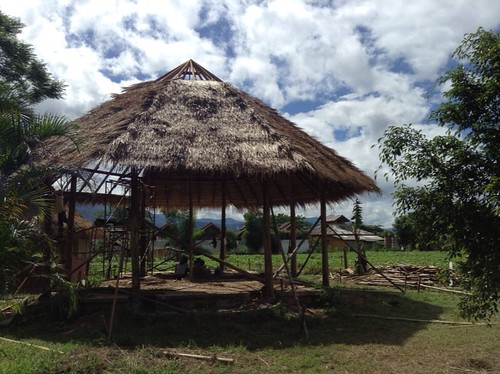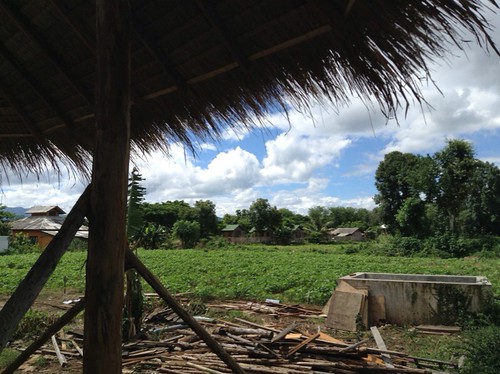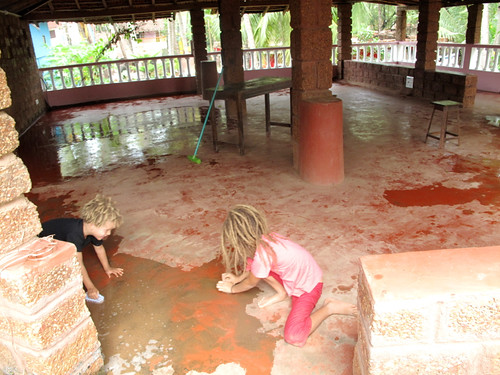
Last week I wrote about the expectations surrounding community and how to adjust them to be more accepting of what living alongside other people actually entails, how to cultivate an inner acceptance.
Today I want to talk about the next thing to make community work well, an outer bit of practicality that has everything to do with putting things in the correct order. I think this is one of the easiest things to fumble over. I know we have, many times.
To have a healthy community, you need to ask and answer questions on a regular basis and come up with community rhythms that help and challenge everyone.
There is a set of questions that I've sketched out, to help with finding out where your community is now, then setting the schedules that will work best for you. I can't tell you how important the order is, here. In a world and culture where we are always scrambling to fit the bill, we tend to come up with ideas of what we should be doing, and then, when leaks inevitably spring because we've overextended ourselves, we run around and try to plug the holes. So. Here are the questions that seem to work, in the sanest order.
1. What is your vision?
2. Who do you have?
3. What will you do?
4. What/who do you need to do more?
What is your vision?
I strongly believe that a community will be healthier if it has an idea of something it wants to accomplish, if being together is not the end goal, but the way of life that enables everyone to thrive in doing what they believe in. For my community, that would be living and teaching Christian practice among the international community of travelers around the world. For some communities, it may be restoring permaculture methods, rebuilding a neighborhood in an urban setting, or working with children who are at risk. It may also be something small, like knitting or eating soup or putting photos in albums or listening to stories.
Once you've decided what you are hoping to accomplish, you can dream and make your vision more robust, and you can look at who you have and what kind of community you want to create. Community means togetherness, and you can do togetherness in anyway you want, as long as it is committed. You can be together twice a week, you can live together, you can live near each other. You decide, and you come to agreement.
Who do you have?
Look around and really see each other? What are you skilled at? What are you passionate about? How much time do each of you have to work with? What are your capabilities? Longings? Dreams? How many families do you have, and how will their children be involved? How will singles and families work together?
What will you do?
When you look at who you have with you, you'll be able to decide what you will do. For example, this year when Chinua and I were in Goa, we and Miriam had a talking circle, as we always do, at the very beginning of the season. We asked each other, "What can we do this season?"
There were three of us who were experienced at guiding meditation, so we decided to have three meditation sessions per week. In past years, when we've had more people with us, we've done them five days a week.
Chinua, a skilled musician, was inspired to be out playing music as much as possible, so we decided to worship together on the beach once or more a week. Chinua was also really excited about leading workshops on aspects of the life of a Jesus follower, so we added that into the week. We all loved Devotion Circles, so we kept that in place on Saturdays. I am in love with gardening and Miriam wanted to learn more about gardening together before she took on the care of our community gardening, so we added a community gardening time. And we took Sunday as a day of rest. Our week ended up looking like this:
Monday: 10:00 AM meditation, 1:00 PM lunch scheduling circle, 5:00 PM worship on the beach
Wednesday: 10:00 AM meditation
Thursday: 9:00 AM community gardening
Friday: 10:00 AM Workshop, 5:00 PM meditation on the beach
Saturday: 5:00 PM Devotion circle and dinner after
Sunday: Rest
These were the rhythms that we cycled through, week after week. In addition, we would meet once a week (during the Monday lunch scheduling circle) and talk about whether there were other things we wanted to do during the week. There were always things we wanted to do, and we managed to make time for a few of them! We hosted two night time concerts. Miriam would often make lunch on Wednesdays, inviting friends from the larger community in our neighborhood. Miriam also had a daily group prayer time, from 8:00 to 9:00 every morning, which was always optional since some of us have children and felt that it wasn't something we wanted to add to our days, as well as preferring a private prayer time.
Some people, looking at this schedule, will say that it is a LOT for a group of people to do together. Some people will say that it's not a lot at all. "That's not community," they say. "You barely do anything together!" That brings me to something that I will write about next week. To form a community that will work, you will need values that do not change, because people's opinions about your community will be many and varied, and you cannot shift with opinions. The things that are unchangeable will allow you to be flexible with other things, the things that can change. Your rhythms and schedules are like crops in your garden, you can change them depending on the season, but you always have the soil underneath, you feed it and take care of it, because your harvest depends on it. This is the deep stuff.
We have a long page of these values. One such value for us is that we do what we are able. We look at who we have, then we decide what to do. It works.
What/who do you need to do more?
Is your vision larger than your current community is capable of sustaining? The answer is not to get everyone to do more, but to ask what you need to grow. Do you need more people? Or more skills?
In our circle of deciding how our seasons will look, we take into account the fact that we have a musician and people who are experienced with guiding meditations. We also have good cooks and people who love gardening and are willing to champion it as a community practice. If we want more, do more of us need to learn to play music? Or do we need to invite more musicians to live with us? If we want to build an earth building, does one of us need to take a course on earth building? Do we need more gardening skills? More people to make our community healthier?
And after all this time, I can say that we always seem to need more skills and more people. We need people! It's something that comes up in our prayers all the time. You can pray for the things you need, and you can work on ways to find what you need.
There are so many variations on making your own community rhythms. I think that often people imagine there's only one way to make a community and see it grow, but the truth is that the need for community lies within all of us and there are as many different ways as there are walks of life. Be free to explore yours!
Next week I'll write about forming community values.





















